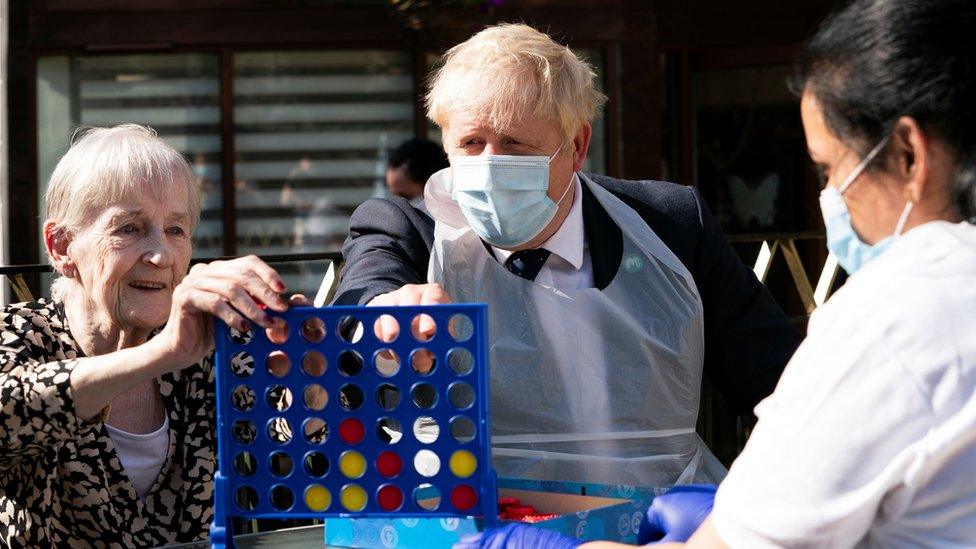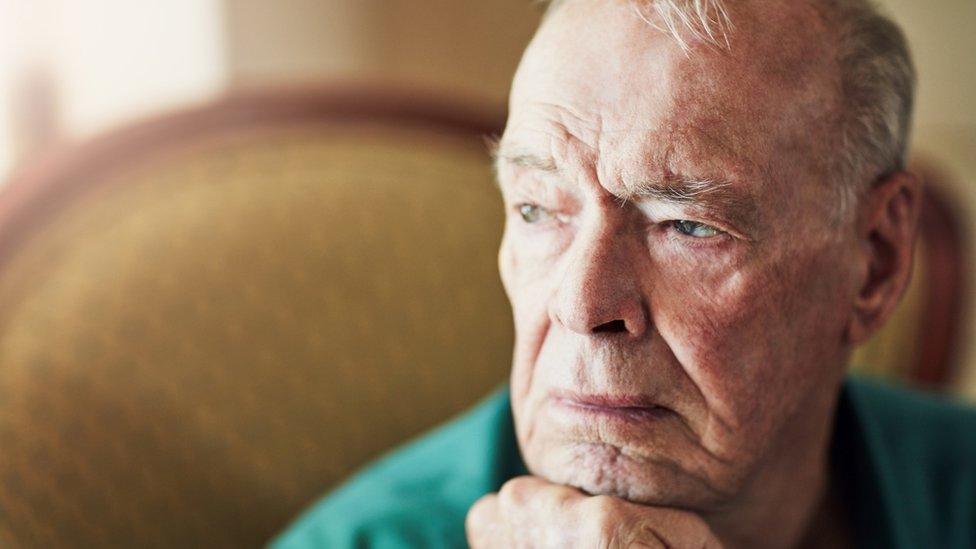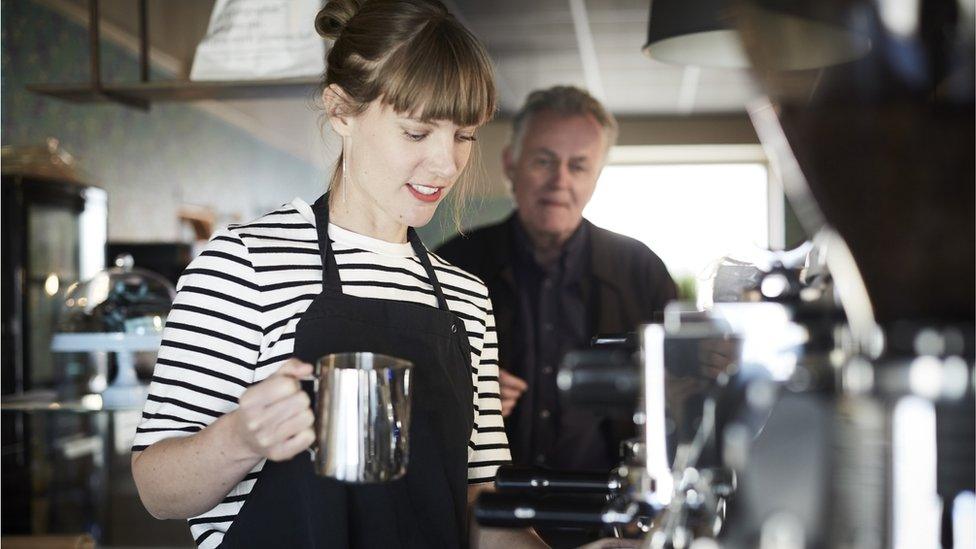Social care: PM bets on imperfection over inaction
- Published

The prime minister visited a London care home ahead of his big announcement on Tuesday
Boris Johnson has long believed that conventions are there to be broken. He's certainly done that.
A pair of election promises have been torn up. The Treasury's shaken off its traditional allergy to new specific taxes.
Highly significant changes are being made to the tax and health system without wide debate among ministers or the governing party.
Pensioners who keep working will pay national insurance for the first time.
And again, today's decisions confirm Boris Johnson's credo includes being a big spender, if he deems the moment requires it.
It's provided yet more evidence that his government believes the public is willing to accept heavy price tags, and broken political vows, as long as the label is marked "NHS".
Before the announcement, there was loud belly aching among backbenchers and Tory party grandees.
There's unease about trust, as manifesto promises evaporate.
Others wonder where the Tories' fiscal soul has gone, as the moves confirm Boris Johnson's seeming affection for big government, and big expensive interventions, driven in part - but not entirely - by the pandemic.
The opposition parties don't like it one bit, arguing the tax will unfairly hit working people, and wondering aloud where the real guarantees for improving care are.
The ultimate test though probably won't be in the Commons tomorrow, or even in the next few months, but in the years to come.
Public anxiety
Today is first and foremost a huge tax increase that will be spent by the NHS.
Downing Street can't take for granted that patients will feel a big difference, or that the creaking care system will be better in a few years, or indeed that many thousands of families won't still face terrible heartaches.
But No 10 hopes that taking action will ease public anxiety.
And Boris Johnson wants to avoid laying himself open to the charge of starving the NHS of the funds it needs after the battering of the pandemic.
The prime minister has chosen the risk of an imperfect solution over the political risk of doing nothing at all.
And that is a bet that he believes he can win.
Related topics
- Published20 November 2022

- Published6 November 2022

